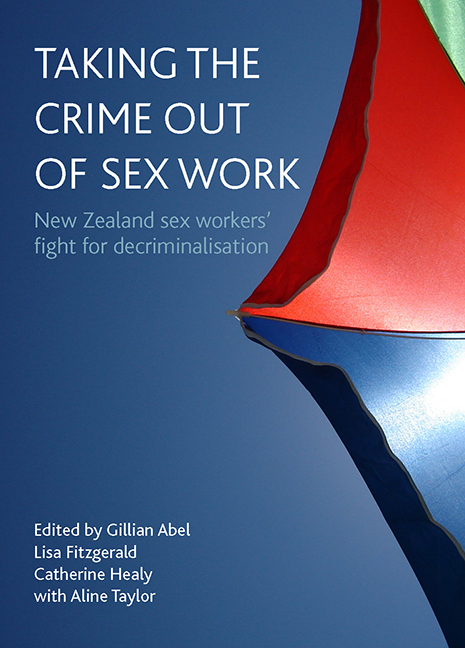Book contents
- Frontmatter
- Contents
- List of tables and figures
- Notes on contributors
- Acknowledgements
- one Introduction
- Part One Lead-up to the passing of the 2003 Prostitution Reform Act
- Part Two Implementation and impact of the 2003 Prostitution Reform Act: the first five years
- Index
- Also available from The Policy Press
fourteen - Decriminalisation and stigma
Published online by Cambridge University Press: 01 September 2022
- Frontmatter
- Contents
- List of tables and figures
- Notes on contributors
- Acknowledgements
- one Introduction
- Part One Lead-up to the passing of the 2003 Prostitution Reform Act
- Part Two Implementation and impact of the 2003 Prostitution Reform Act: the first five years
- Index
- Also available from The Policy Press
Summary
This chapter further examines the emotional health of sex workers, as discussed in the previous chapter, in light of the stigma that sex workers continue to experience post-decriminalisation. We draw on and develop theories of stigma and examine how sex workers themselves actively manage stigma through constructing alternative identities.
Experiences of stigmatisation prevail among sex workers, brought about through negative social reactions to their occupation (Vanwesenbeeck, 2001). Moral discourses place sex workers in the category of ‘deviant’ – not conforming to the norms of society. It has been argued that sexuality is able to cause moral panic because it is fundamental to the general population's worldview (Sibley, 1995). Sex workers, and most especially female sex workers, do not conform to ideals of ‘normal’ sexuality with its accompanying presumptions of female passivity in the sexual domain. They are, therefore, as Sibley (1995) has termed, ‘othered’ – different from ‘normal’ decent citizens, framed as ‘deviant’ and generally stereotyped as involved in drug use, gang activity, crime, spread of sexually transmitted infections and with threatening the moral fabric of society. Identifying norms and labelling difference, stereotyping and connecting the labelled to undesirable traits and separating them into ‘others’ – different from ‘us’ – are all part of the process in which stigma is generated (Link and Phelan, 2006). This process has been used worldwide in attempts to exclude sex workers from society, leading to loss of status and the reproduction of inequalities (Link and Phelan, 2006). It is within this milieu that sex workers must justify their actions.
Goffman (1990) argued that if an individual fails to maintain norms, it has an impact on the defaulter's acceptability in social situations. Such difference or ‘deviance’ leads to feelings of shame, which create a ‘spoiled identity’ – stigma being mapped on to people resulting in them being devalued by society (Goffman, 1990). However, in recent years, Goffman has been critiqued as providing an analysis of stigma that is too individualised and fails to account for the structural conditions that lead to the reproduction of inequality and exclusion (Riessman, 2000; Link and Phelan, 2001; Parker and Aggleton, 2003; Scambler, 2007; Scambler and Paoli, 2008).
- Type
- Chapter
- Information
- Taking the Crime out of Sex WorkNew Zealand Sex Workers' Fight for Decriminalisation, pp. 239 - 258Publisher: Bristol University PressPrint publication year: 2010



